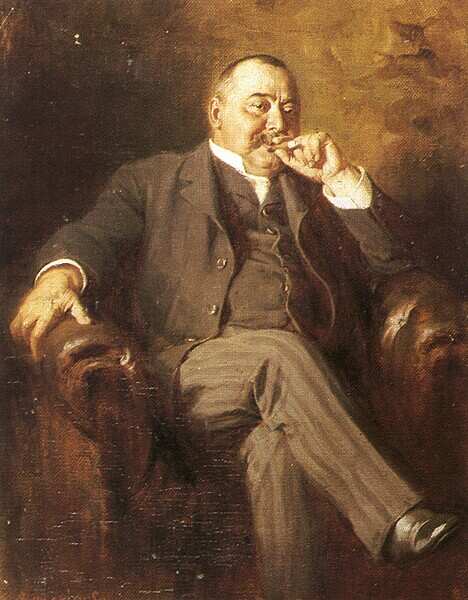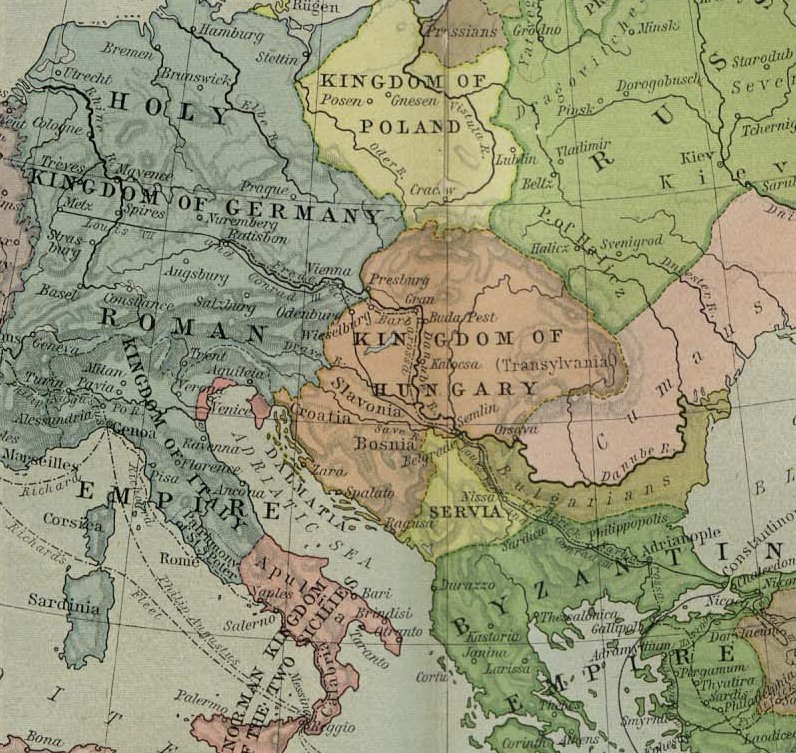|
János Fliszár
János Fliszár ( sl, Janoš Flisar; June 21, 1856 – June 21, 1947) was a Hungarian Slovenian translator, poet, writer, journalist, and teacher. He was born in the village of Šalamenci in the Prekmurje region of the Kingdom of Hungary; his parents were Miklós Fliszár and Ilona Zsibrik. He enrolled in the elementary school in Puconci in 1862, and later studied in Nemescsó near Kőszeg. Until 1868 he studied at the Lutheran Lyceum in Sopron, graduating in June 1875. In October the same year he started working as teacher in Križevci. There he was married to the daughter of the writer János Berke in 1878 (she died in 1905). In 1911 he retired and worked in Murska Sobota. Until 1923 he worked as the director of the Murska Sobota dormitory. Fliszár wrote some poetry and translated the Hungarian literature (by János Arany, Kálmán Mikszáth, Sándor Petőfi, Mór Jókai, etc.). His translations were published in the United States, in the newspaper ''Amerikanszki Szloven ... [...More Info...] [...Related Items...] OR: [Wikipedia] [Google] [Baidu] |
Kálmán Mikszáth
Kálmán Mikszáth de Kiscsoltó (16 January 1847 – 28 May 1910) was a widely reputed Hungarian novelist, journalist, and politician. His work remains in print in Hungarian and still appears from time to time in other languages. Biography Mikszáth was born in Szklabonya (also known as Sklabiná or Szlabonya),In parentheses are official names valid and used in 1808–1863 Upper Hungary (now Sklabiná, Slovakia) into a family of the lesser nobility. He studied law at the University of Budapest from 1866 to 1869, although he did not apply for any exam, and became involved in journalism, writing for many Hungarian newspapers including the '. Mikszáth's early short stories were based on the lives of peasants and artisans and had little appeal at the time. However, they demonstrated his skill in crafting humorous anecdotes, which would be developed in his later, more popular works. Many of his novels contained social commentary and satire, and towards the end of his life they b ... [...More Info...] [...Related Items...] OR: [Wikipedia] [Google] [Baidu] |
1856 Births
Events January–March * January 8 – Borax deposits are discovered in large quantities by John Veatch in California. * January 23 – American paddle steamer SS ''Pacific'' leaves Liverpool (England) for a transatlantic voyage on which she will be lost with all 186 on board. * January 24 – U.S. President Franklin Pierce declares the new Free-State Topeka government in "Bleeding Kansas" to be in rebellion. * January 26 – First Battle of Seattle: Marines from the suppress an indigenous uprising, in response to Governor Stevens' declaration of a "war of extermination" on Native communities. * January 29 ** The 223-mile North Carolina Railroad is completed from Goldsboro through Raleigh and Salisbury to Charlotte. ** Queen Victoria institutes the Victoria Cross as a British military decoration. * February ** The Tintic War breaks out in Utah. ** The National Dress Reform Association is founded in the United States to promote "rational" dress for ... [...More Info...] [...Related Items...] OR: [Wikipedia] [Google] [Baidu] |
Hungarian Irredentism
Hungarian irredentism or Greater Hungary ( hu, Nagy-Magyarország) are irredentist political ideas concerning redemption of territories of the historical Kingdom of Hungary. Targeting at least to regain control over Hungarian-populated areas in Hungary's neighbouring countries. Hungarian historiography uses the term "Historic Hungary" (). "Whole Hungary" () is also commonly used by supporters of this ideology. The Treaty of Trianon defined the current borders of Hungary and, compared against the claims of the pre-war Kingdom, post-Trianon Hungary had approximately 72% less land stake and about two-thirds fewer inhabitants, almost 5 million of these being of Hungarian ethnicity. However, only 54% of the inhabitants of the pre-war Kingdom of Hungary were Hungarians before World War I. Following the treaty's instatement, Hungarian leaders became inclined towards revoking some of its terms. This political aim gained greater attention and was a serious national concern up through the S ... [...More Info...] [...Related Items...] OR: [Wikipedia] [Google] [Baidu] |
Slovenian Journalists
Slovene or Slovenian may refer to: * Something of, from, or related to Slovenia, a country in Central Europe * Slovene language, a South Slavic language mainly spoken in Slovenia * Slovenes, an ethno-linguistic group mainly living in Slovenia * Slavic peoples, an Indo-European ethno-linguistic group * Ilmen Slavs The Novgorod Slavs, Ilmen Slavs (russian: Ильменские слове́не, ''Il'menskiye slovene''), or Slovenes (not to be confused with the Slovenian Slovenes) were the northernmost tribe of the Early Slavs, and inhabited the shores of L ..., the northernmost tribe of the Early East Slavs {{Disambiguation Language and nationality disambiguation pages ... [...More Info...] [...Related Items...] OR: [Wikipedia] [Google] [Baidu] |
Hungarian Journalists
Hungarian may refer to: * Hungary, a country in Central Europe * Kingdom of Hungary, state of Hungary, existing between 1000 and 1946 * Hungarians, ethnic groups in Hungary * Hungarian algorithm, a polynomial time algorithm for solving the assignment problem * Hungarian language, a Finno-Ugric language spoken in Hungary and all neighbouring countries * Hungarian notation, a naming convention in computer programming * Hungarian cuisine Hungarian or Magyar cuisine is the cuisine characteristic of the nation of Hungary and its primary ethnic group, the Magyars. Traditional Hungarian dishes are primarily based on meats, seasonal vegetables, fruits, bread, and dairy products. ..., the cuisine of Hungary and the Hungarians See also * * {{disambiguation Language and nationality disambiguation pages ... [...More Info...] [...Related Items...] OR: [Wikipedia] [Google] [Baidu] |
Slovenian Writers And Poets In Hungary
Slovene or Slovenian may refer to: * Something of, from, or related to Slovenia, a country in Central Europe * Slovene language, a South Slavic language mainly spoken in Slovenia * Slovenes, an ethno-linguistic group mainly living in Slovenia * Slavic peoples, an Indo-European ethno-linguistic group * Ilmen Slavs The Novgorod Slavs, Ilmen Slavs (russian: Ильменские слове́не, ''Il'menskiye slovene''), or Slovenes (not to be confused with the Slovenian Slovenes) were the northernmost tribe of the Early Slavs, and inhabited the shores of L ..., the northernmost tribe of the Early East Slavs {{Disambiguation Language and nationality disambiguation pages ... [...More Info...] [...Related Items...] OR: [Wikipedia] [Google] [Baidu] |
List Of Slovene Writers And Poets In Hungary
This is a list of Slovene writers and poets in Hungary. A * Imre Augustich B * József Bagáry * Mária Bajzek Lukács * Mihály Bakos * István Ballér * Irén Barbér * Mihály Barla * Iván Bassa * József Bassa * Balázs Berke * Ferenc Berke * Mihály Bertalanits * József Borovnják C * György Czipott * Rudolf Czipott D * Alajos Drávecz * József Dravecz F * Ádám Farkas * Iván Fliszár * János Fliszár G * Mihály Gáber * Alajos Gáspár * Mátyás Godina H * Károly Holecz * András Horváth * Ferenc Hüll K * János Kardos * József Klekl (politician) * József Klekl (writer) * Péter Kollár * Mihály Kolossa * József Konkolics * József Kossics * György Kousz * László Kovács * Miklós Kovács * István Kováts * István Kozel * Károly Krajczár * Mátyás Krajczár * István Kühár (I) * István Küzmics * Miklós Küzmics L * Miklós Legén * Gergely Luthár * Mihály Luttár * Miklós Luttár * Pál Luthár * István Lülik ... [...More Info...] [...Related Items...] OR: [Wikipedia] [Google] [Baidu] |
Irredentism
Irredentism is usually understood as a desire that one state annexes a territory of a neighboring state. This desire is motivated by ethnic reasons (because the population of the territory is ethnically similar to the population of the parent state) or by historical reasons (because the territory formed part of the parent state before). However, difficulties in applying the concept to concrete cases have given rise to academic disputes about its precise definition. Disagreements concern whether either or both ethnic and historical reasons have to be present, whether non-state actors can also engage in irredentism, and whether attempts to absorb a full neighboring state are also included. Various scholars discuss different types of irredentism. One categorization distinguishes between cases in which the parent state exists before the conflict and cases in which a new parent state is formed by uniting an ethnic group spread across several countries. Another distinction concerns wheth ... [...More Info...] [...Related Items...] OR: [Wikipedia] [Google] [Baidu] |
Yugoslavia
Yugoslavia (; sh-Latn-Cyrl, separator=" / ", Jugoslavija, Југославија ; sl, Jugoslavija ; mk, Југославија ;; rup, Iugoslavia; hu, Jugoszlávia; rue, label=Pannonian Rusyn, Югославия, translit=Juhoslavija; sk, Juhoslávia; ro, Iugoslavia; cs, Jugoslávie; it, Iugoslavia; tr, Yugoslavya; bg, Югославия, Yugoslaviya ) was a country in Southeast Europe and Central Europe for most of the 20th century. It came into existence after World War I in 1918 under the name of the ''Kingdom of Serbs, Croats and Slovenes'' by the merger of the provisional State of Slovenes, Croats and Serbs (which was formed from territories of the former Austria-Hungary) with the Kingdom of Serbia, and constituted the first union of the South Slavic people as a sovereign state, following centuries in which the region had been part of the Ottoman Empire and Austria-Hungary. Peter I of Serbia was its first sovereign. The kingdom gained international recog ... [...More Info...] [...Related Items...] OR: [Wikipedia] [Google] [Baidu] |
World War I
World War I (28 July 1914 11 November 1918), often abbreviated as WWI, was one of the deadliest global conflicts in history. Belligerents included much of Europe, the Russian Empire, the United States, and the Ottoman Empire, with fighting occurring throughout Europe, the Middle East, Africa, the Pacific, and parts of Asia. An estimated 9 million soldiers were killed in combat, plus another 23 million wounded, while 5 million civilians died as a result of military action, hunger, and disease. Millions more died in genocides within the Ottoman Empire and in the 1918 influenza pandemic, which was exacerbated by the movement of combatants during the war. Prior to 1914, the European great powers were divided between the Triple Entente (comprising France, Russia, and Britain) and the Triple Alliance (containing Germany, Austria-Hungary, and Italy). Tensions in the Balkans came to a head on 28 June 1914, following the assassination of Archduke Franz Ferdin ... [...More Info...] [...Related Items...] OR: [Wikipedia] [Google] [Baidu] |
United States Of America
The United States of America (U.S.A. or USA), commonly known as the United States (U.S. or US) or America, is a country primarily located in North America. It consists of 50 states, a federal district, five major unincorporated territories, nine Minor Outlying Islands, and 326 Indian reservations. The United States is also in free association with three Pacific Island sovereign states: the Federated States of Micronesia, the Marshall Islands, and the Republic of Palau. It is the world's third-largest country by both land and total area. It shares land borders with Canada to its north and with Mexico to its south and has maritime borders with the Bahamas, Cuba, Russia, and other nations. With a population of over 333 million, it is the most populous country in the Americas and the third most populous in the world. The national capital of the United States is Washington, D.C. and its most populous city and principal financial center is New York City. Paleo ... [...More Info...] [...Related Items...] OR: [Wikipedia] [Google] [Baidu] |




